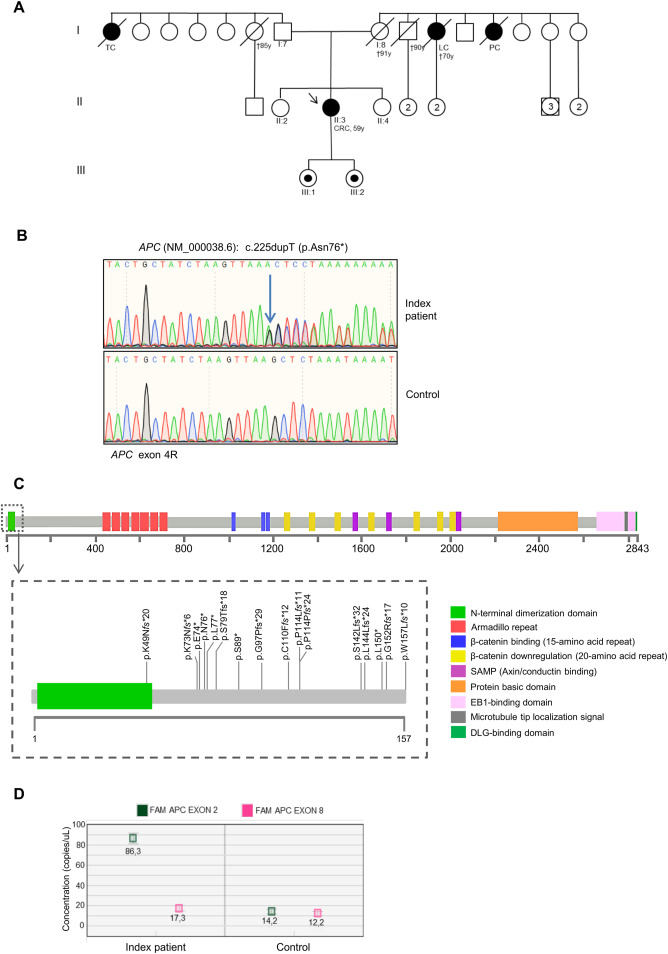
Identification of a novel germline APC N-terminal pathogenic variant associated with attenuated familial adenomatous polyposis


Adenomatous polyposis coli (APC) is a key tumor suppressor gene playing a central role in the Wnt signaling pathway through β-catenin down-regulation.1 APC germline pathogenic variants are associated with familial adenomatous polyposis (FAP), an autosomal dominant colorectal cancer (CRC) predisposition syndrome characterized by the development of hundreds to thousands of colorectal adenomatous polyps.1 Depending on the number of polyps and age of onset, FAP can be classified into four forms: profuse FAP (>1000 adenomas), intermediate FAP (100-1000 adenomas), attenuated FAP (10–100 adenomas), and gastric polyposis and desmoid FAP (<50 polyps).1 Disease severity seems to be correlated with the location of APC pathogenic variants, most of which occur over the 5′ half of the gene, leading to the elimination of domains involved in β-catenin level regulation and Axin binding.1
